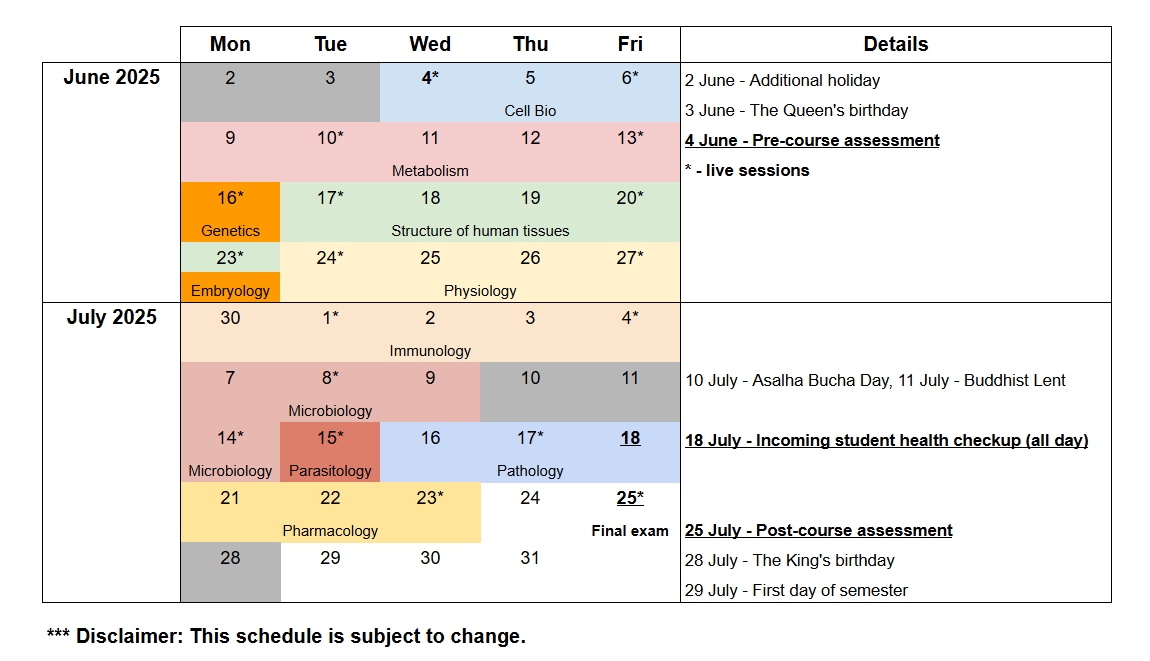The course is organized into 9 mini-modules as follows
1. Basic cellular biology: An overview of the fundamental concepts of cell biology, including the building blocks of cells, cellular organization, energetics, organelle function, the role of genes, the central dogma of molecular biology, cellular reproduction, cell signaling, and cellular transport.
2. Metabolism: Building upon the principles from basic cellular biology, Metabolism will look in depth at different metabolic pathways for carbohydrates, lipids, proteins, and nucleic acids, as well as how the human body processes vitamins, reactive oxygen species, and xenobiotics, and how all metabolic pathways are interconnected.
3. Human development and genetics: An overview of the principles of human genetics, including the concept of a gene, allele, patterns of heredity, genes within a population, epigenetics, patterns of genetic alteration, and methods of detecting such alterations. Human development will cover the transformation of a single cell into an embryo and provide a template for understanding the structure and organization of the human body.
4. Structure of human tissue: An introduction to the structure of human tissues at a microscopic (histology) level, with an emphasis on anatomic terms and microscopic organization of tissue.
5. Physiology: An introduction to the principles of human physiology, including homeostasis, membrane transport and membrane potentials, function of synapses, function of muscles, the role of fluids, pressure and volume relationships, and control of metabolism
6. Immunology: An exploration of the complex cellular and acellular components which constitute the human immune system. This includes components of the innate immune system (cytokines, the complement system, leukocyte function) and adaptive immune system (lymphocyte development, antigen presentation, humoral and cell-mediated immunity), as well as a brief introduction to vaccines and immunodiagnostics.
7. Microbiology and parasitology: A wide-ranging overview of the basic biology of bacteria, fungi, protozoa, viruses, and parasites that infect and cause human disease. We will cover their effects on human hosts, the host response, and briefly introduce laboratory techniques to detect microorganisms.
8. Pharmacology: Integrating knowledge from biochemistry and physiology, this is an introduction into the effects of drugs on tissues (pharmacodynamics), how a drug is metabolized (pharmacokinetics), and drugs affecting the autonomic nervous system.
9. Pathologic basis of disease: An exploration into how the regular function of the body is interrupted by disease processes and the body’s response. This integrates knowledge from cell biology, structure of human tissues, physiology, immunology, and microbiology to illustrate the nature of disease states


